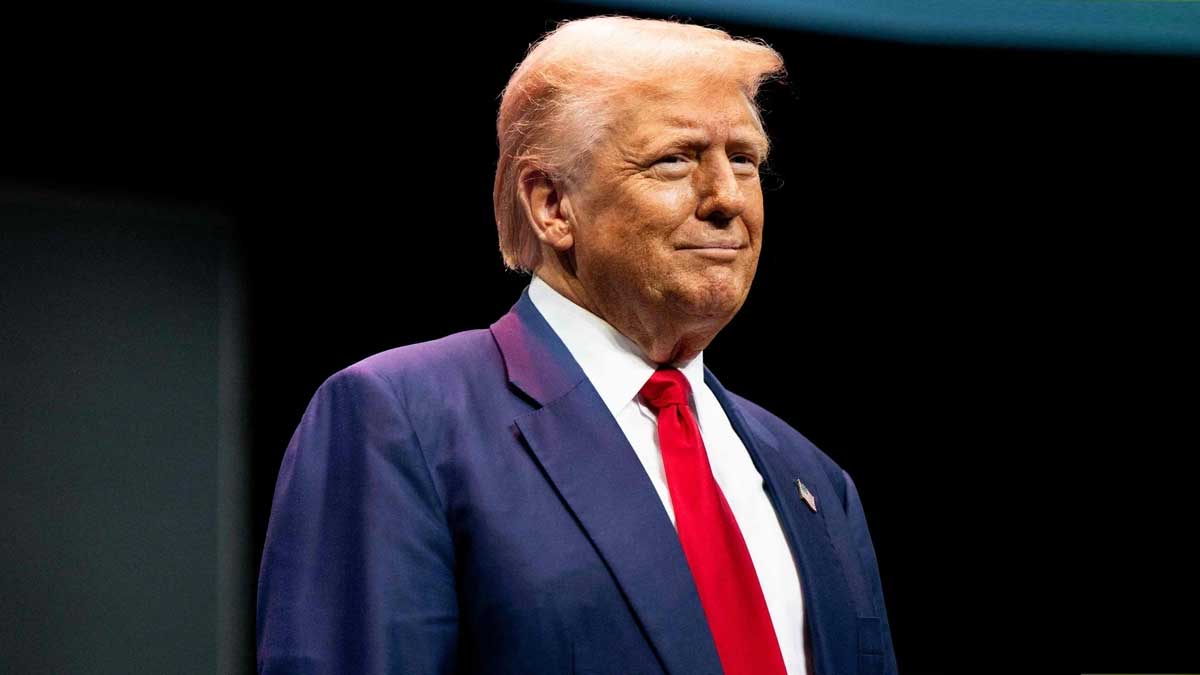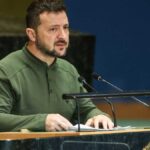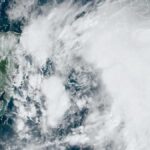- Home
- Billionaires
- Investing Newsletters
- 193CC 1000
- Article Layout 2
- Article Layout 3
- Article Layout 4
- Article Layout 5
- Article Layout 6
- Article Layout 7
- Article Layout 8
- Article Layout 9
- Article Layout 10
- Article Layout 11
- Article Layout 12
- Article Layout 13
- Article Layout 14
- Article Sidebar
- Post Format
- pages
- Archive Layouts
- Post Gallery
- Post Video Background
- Post Review
- Sponsored Post
- Leadership
- Business
- Money
- Small Business
- Innovation
- Shop
Recent Posts
Trump Claims Threats to His Life from Iran

Former President Donald Trump has claimed that his life is under significant threat from Iran, following a recent intelligence briefing he received regarding potential assassination plots. In a post made early Wednesday on his Truth Social platform, Trump described the situation as grave, emphasizing that U.S. military forces are “watching and waiting” due to these “big threats.” His comments came just after his campaign revealed that intelligence officials had alerted him to “real and specific threats from Iran” aimed at destabilizing the United States.
Trump’s statement lacked specific details about the threats but suggested that Iran had previously attempted to act against him, noting, “moves were already made by Iran that didn’t work out, but they will try again.” This vague warning reflects the tension that has characterized U.S.-Iran relations, especially under his presidency, when the rhetoric often escalated over issues related to nuclear capabilities and regional influence.
In his social media message, Trump also expressed gratitude to Congress for its recent bipartisan efforts to enhance security measures for presidential candidates. He remarked, “Nice to see Republicans and Democrats get together on something,” which underscored the unusual moment of unity in a typically polarized political landscape. The former president further claimed that he now finds himself surrounded by “more men, guns, and weapons than I have ever seen before,” implying that his security detail has been significantly bolstered in light of the threats. He issued a stark warning to any would-be attackers, declaring that targeting him would be a “Death Wish for the attacker!”
The alarming nature of Trump’s allegations coincided with the announcement from his campaign that he had been briefed by the Office of the Director of National Intelligence (ODNI) about these threats. The campaign reported that intelligence officials have noted a pattern of “continued and coordinated attacks” that have intensified over the past few months, although they refrained from specifying particular incidents or direct links to foreign entities. This lack of detail has raised questions about the credibility and sourcing of the information Trump is presenting.
Steven Cheung, the communications director for Trump’s campaign, took the opportunity to pivot the conversation to attacking Vice President Kamala Harris. He asserted, “Make no mistake, the terror regime in Iran loves the weakness of Kamala Harris, and is terrified of the strength and resolve of President Trump.” This statement reflects a broader narrative often utilized by Trump and his supporters, portraying him as a strong leader capable of confronting adversaries, contrasting it with what they characterize as the perceived weakness of his political opponents.
In recent months, Trump has faced two assassination attempts that add context to his claims. The first incident occurred in July during a rally in Pennsylvania when a gunman, later identified as Thomas Matthew Crooks, fired multiple shots at Trump from a rooftop. Remarkably, one of the bullets grazed Trump’s ear before the shooter was killed by the Secret Service. The second attempt took place at Trump’s golf course in West Palm Beach, Florida, earlier this month. In this incident, a suspect identified as Ryan Routh was spotted by Secret Service agents attempting to fire a weapon at Trump. Routh was found with an AK-47-style gun, backpacks, and a GoPro camera. However, he was apprehended before he could pull the trigger, thanks in part to a witness who provided police with a photo of his vehicle’s license plate.
Despite these serious incidents, law enforcement and intelligence agencies have yet to establish any connections between the assassination attempts and foreign entities or governments, leaving open questions about the nature and motivation behind these threats. The lack of direct evidence linking these events to Iranian operatives may weaken the case for immediate action against Iran, despite Trump’s urgent warnings.
Trump’s remarks and the surrounding context are indicative of the heightened tensions and often volatile nature of his relationship with both international adversaries and domestic political rivals. As the 2024 presidential campaign heats up, his allegations serve a dual purpose: drawing attention to perceived external threats while simultaneously galvanizing his political base by portraying himself as a target of not just foreign threats, but also of a political system he claims is failing to adequately protect its leaders.
As this situation unfolds, it raises broader questions about the implications of such threats on U.S. foreign policy, especially regarding Iran. How the current administration responds to Trump’s claims and the potential threats will likely influence public perception and political discourse in the coming months. The narrative surrounding national security is particularly potent in election cycles, and Trump’s assertions may well shape discussions on how best to address threats from abroad, especially from regimes viewed as hostile to U.S. interests.
In summary, Trump’s recent claims about threats to his life from Iran add a complex layer to his ongoing political narrative, intertwining personal security with broader national security discussions. The tension between perceived threats and actual incidents reflects the high-stakes nature of political discourse in America, particularly as the country approaches another contentious election cycle.
Recent Posts
Categories
- 193 Countries Consortium Partner1
- 193cc Digital Assets2
- 5G1
- Aerospace & Defense48
- AI37
- Arts3
- Banking & Insurance11
- Big Data3
- Billionaires1,261
- Boats & Planes1
- Business332
- Careers13
- Cars & Bikes79
- CEO Network1
- CFO Network17
- CHRO Network1
- CIO Network1
- Cloud10
- CMO Network18
- Commercial Real Estate7
- Consultant1
- Consumer Tech194
- CxO1
- Cybersecurity73
- Dining1
- Diversity, Equity & Inclusion4
- Education7
- Energy8
- Enterprise Tech29
- Events11
- Fintech1
- Food & Drink2
- Franchises1
- Freelance1
- Future Of Work2
- Games149
- GIG1
- Healthcare79
- Hollywood & Entertainment203
- Houses1
- India’s 1000 Richest1
- Innovation46
- Investing2
- Investing Newsletters4
- Leadership65
- Lifestyle11
- Manufacturing1
- Markets20
- Media327
- Mobile phone1
- Money13
- Personal Finance2
- Policy569
- Real Estate1
- Research6
- Retail1
- Retirement1
- Small Business1
- SportsMoney42
- Style & Beauty1
- Success Income1
- Taxes2
- Travel10
- Uncategorized13
- Vices1
- Watches & Jewelry2
- world's billionaires1,230
- Worlds Richest Self-Made Women2
Related Articles
South Korea Plane Crash: A Tragic Loss and Global Mourning
The tragic plane crash at South Korea’s Muan International Airport on Sunday...
By 193cc Agency CouncilDecember 30, 2024H-1B Visa Debate Splits Trump Allies and Silicon Valley
The debate over H-1B visas has once again become a contentious issue,...
By 193cc Agency CouncilDecember 28, 2024Trump Moves $4B Stake in Truth Social Parent, Stock Drops 6%
Donald Trump recently transferred his 57% stake in Trump Media & Technology...
By 193cc Agency CouncilDecember 20, 2024House Rejects Trump-Backed Funding Bill, Shutdown Looms
The U.S. House of Representatives rejected a new government funding bill on...
By 193cc Agency CouncilDecember 20, 2024















Leave a comment